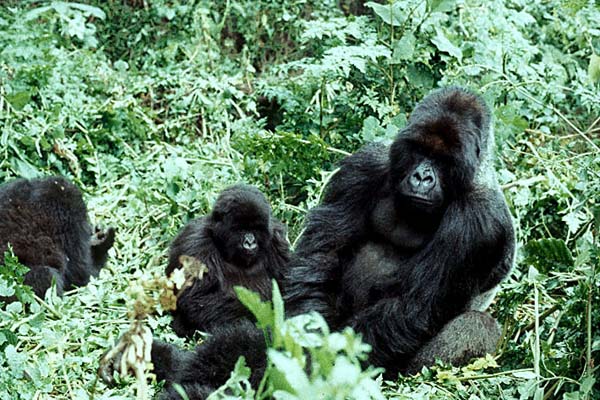|
Central Africa Unites to Protect Congo Basin The tri-national accord will create Sangha Park, an area of more than one million hectares. The agreement between Cameroon, the Republic of Congo and the Central African Republic is the first of its kind in Central Africa. It will link protected zones of Lobeke national park in Cameroon, the Dzanga-Sangha in the Central African Republic, the Nouabale-Ndoki park in the Republic of Congo and the production forests and hunting zones that surround each of those parks. The countries are now expected to harmonize their forestry laws and implement a common management system on anti-poaching measures, ecological monitoring and logging. For the World Wide Fund for Nature (WWF), it marks the culmination of more than a decade of work. "This is an extremely positive development," said Dr. Chris Elliott, WWF's Forests for Life Campaign Director. "It not only represents the first concrete example of sub-regional collaboration on the protection and sustainable management of forests, but is also the fruition of more than 15 years work on WWF's part. "A more coherent approach towards logging and anti-poaching will go a long way to guaranteeing the future of these important forests and the wildlife that live within them." The ministerial meeting included representatives from Chad, Equatorial Guinea and Gabon. It gathered to agree on ways to implement the Yaoundé Declaration, a 12-point resolution signed last year by the six Central African heads of state on the conservation and sustainable management of the forests of the Congo Basin. The six countries agreed to a series of measures, including the creation of a trust fund to implement programs and a coordination and monitoring body to be based in Yaoundé. The signatories have also agreed to protect a minimum of 10 percent of their forests. Forest in Gabon, one of the countries that has agreed to protect 10 percent of forest land under the Yaoundé Declaration. "This is part of a biodiversity blueprint that WWF has also been pushing for," said Elliott. "Now that the Democratic Republic of Congo has declared its adherence to the principles of the Yaoundé Declaration, we should see a substantial area of rainforests here come under protection." Up to 50 percent of the rainforests in the Congo Basin lie in the Democratic Republic of Congo. Illegal logging is causing severe forest degradation and a huge diversity of wildlife, including forest elephants, chimpanzees and gorillas, are greatly hunted for their meat. Many other jungle inhabitants remain threatened andeven undiscovered. Scientists believe these forests could hold the key to future medical advances in the treatment of human ailments. The chimpanzee, for example, recently disclosed as the potential source of the HIV virus in humans and vital to medical research, is severely endangered because of logging and poaching. Another ministerial meeting in March 2001 has been scheduled to implement decisions taken this week.
|

